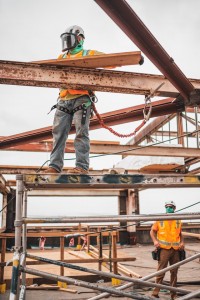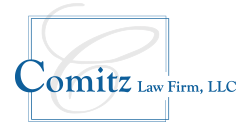 In order for an injury, illness or disease to be covered by workers’ compensation in Pennsylvania, it “must have arisen in the course of employment and the employee must actually be engaged in the furtherance of the business or affairs of the employer, whether upon the premises of the employer or elsewhere.”
In order for an injury, illness or disease to be covered by workers’ compensation in Pennsylvania, it “must have arisen in the course of employment and the employee must actually be engaged in the furtherance of the business or affairs of the employer, whether upon the premises of the employer or elsewhere.”
What exactly does that mean? There’s no simple, singular answer. Pennsylvania courts use a case-by-case inquiry in determining whether the circumstances support an award. A number of factors are examined.
The following cases provide a look at a few of the issues which the courts address.
1912 Hoover House Restaurant v. Workers’ Compensation Appeal Board (Soverns)
In this case, a cook was taking an outdoor “smoke break”, which was allowed by the employer. During the break the father of a co-employee brought his dog to visit. The cook carefully offered his hand to the dog, but was bit on the face, resulting in permanent scarring.
The Court ruled that given the relatively short break, at a location provided by the employer, the actions of the cook were nothing more than a brief, inconsequential, departure, leaving the injured worker still in the scope and course of his employment. The decision of the Appeal Board was affirmed.
Simko v. Workers’ Compensation Appeal Board (United States Steel Corporation-Edgar Thomson Works)
Typically, an injury received by an employee while traveling to and from work is not compensable. However, such an injury is compensable if one of the following exceptions to the “coming and going rule” exist: (1) the employment contract included transportation to and from work; (2) the employee has no fixed place of work; (3) the employee is on a special mission; or (4) special circumstances are such that the employee was furthering the business of the employer.”
In this case, the worker was driving to a monthly safety meeting when he was involved in a serious car accident. As a result of the car accident, he sustained a brain injury. The issue was whether this employee was on a “special mission.”
The Commonwealth Court of Pennsylvania noted that “where attending meetings is part of an employee’s regular work duties, traveling to or from such a meeting is not a special mission.” In his testimony, found credible by the Workers’ Compensation Judge (WCJ), the injured worker admitted that this was a regular monthly meeting that he was required, by his job, to attend. Further, the injured worker agreed this was considered part of his shift, and he was paid his regular hourly wage for the time of the meetings.
US Airways Inc. v. Workers’ Compensation Appeal Board (Bockelman)
The claimant worked for employer as a Philadelphia-based flight attendant. In order to get to work, she drove her own vehicle to the airport and parked in one of the two designated employee parking lots. Both parking lots are owned, operated, and maintained by the City of Philadelphia/Division of Aviation (DOA), for the use of all airport employees, not just those of employer.
On January 23, 2015, the claimant parked her car in the employee parking lot and rode the employee shuttle bus to the terminal to report for work. The employer scheduled the claimant to work a one-day trip from Philadelphia to Miami and back. The claimant’s return fight from Miami landed in Philadelphia at approximately 9:47 p.m. After a brief discussion with a co-worker, the claimant departed the terminal to the employee shuttle bus stop. After boarding the shuttle bus, the claimant attempted to lift her suitcase onto the luggage racks. While trying to place her luggage on the racks, the claimant stepped in water on the floor, causing her right foot to slide out from underneath her.
On June 2, 2015, the claimant filed a claim petition, alleging that she sustained work-related injuries to her left foot from her January 23, 2015 slip and fall. The employer filed a timely answer, denying that claimant was within the scope of her employment at the time of her injury.
By decision dated April 27, 2016, the WCJ concluded that the claimant sustained injuries in the course and scope of her employment. On appeal, the employer essentially argued that the Board erred as a matter of law in concluding that the claimant was in the course and scope of her employment at the time of her injury. Specifically, the employer argued that the Board erred in concluding that claimant’s injury occurred on the employer’s premises, because the employer did not own, lease, or control the shuttle bus and parking lot, and they were not integral to the employer’s business.
In numerous cases Pennsylvania courts have held that a reasonable means of access to the situs of an employer’s business operation is such an integral part of an employer’s business as to be encompassed within the definition of “premises” as that term is used in the applicable section of the Pennsylvania Workers’ Compensation Act.
Because the claimant was still in the process of walking from her work station to her car at the time of her injury, the Court determined that “her presence on the employer’s premises remained so connected to the employment relationship that it was required by the nature of her employment.”
Penn State University v. Workers’ Compensation Appeal Board (Smith)
In June 2007, a Penn State University cook/housekeeper jumped down a flight of 12 stairs on his lunch break, fracturing both legs. After surgery in which screws were implanted in his ankles, the worker applied for workers’ compensation benefits for the injuries, claiming that they were work related. Benefits were awarded by the WCJ, and subsequently affirmed by the Appeal Board. The Commonwealth Court found that the worker’s action did not further the business, affairs, or any specific interest of the employer; was wholly foreign to his employment; and was not encouraged by the employer. Accordingly, “the pre-meditated, deliberate, extreme, and inherently high-risk nature” of his jumping down an entire flight of stairs was sufficient to remove him from the course and scope of his employment even if he had not been on a lunch break.
lf you need any assistance in filing a worker’s compensation claim or appeal, call Comitz Law at 570-829-1111 or email info@comitzlaw.com.


